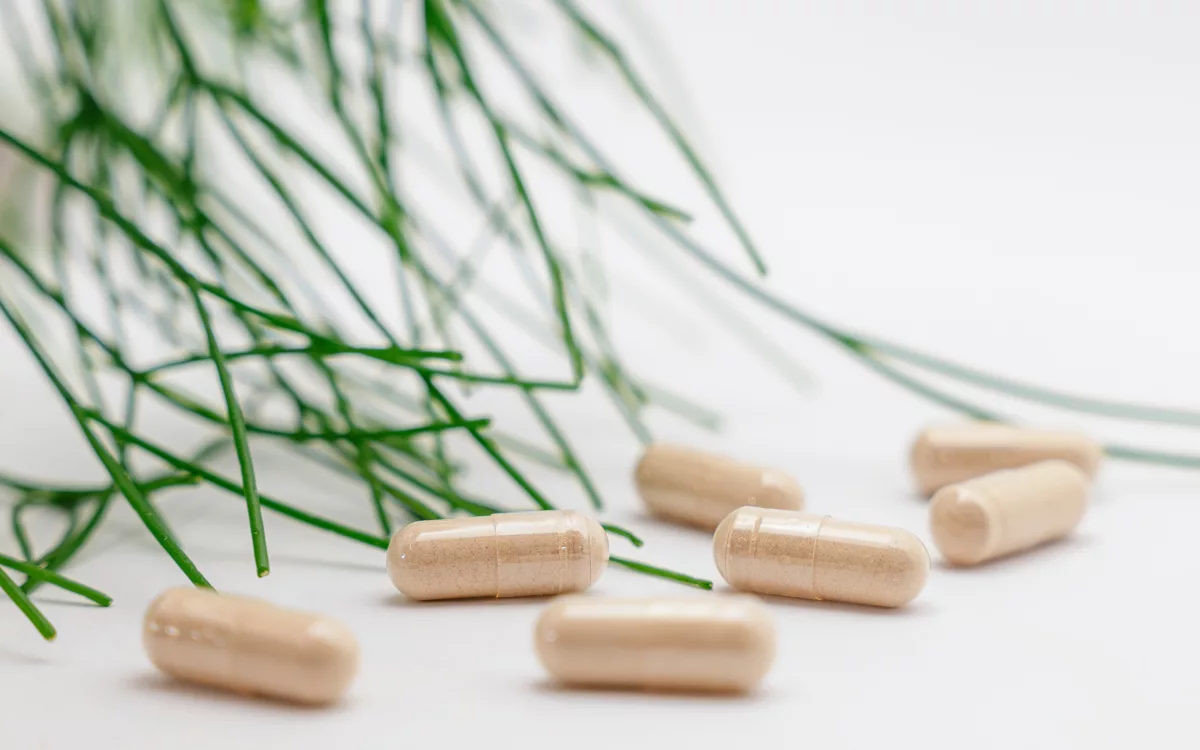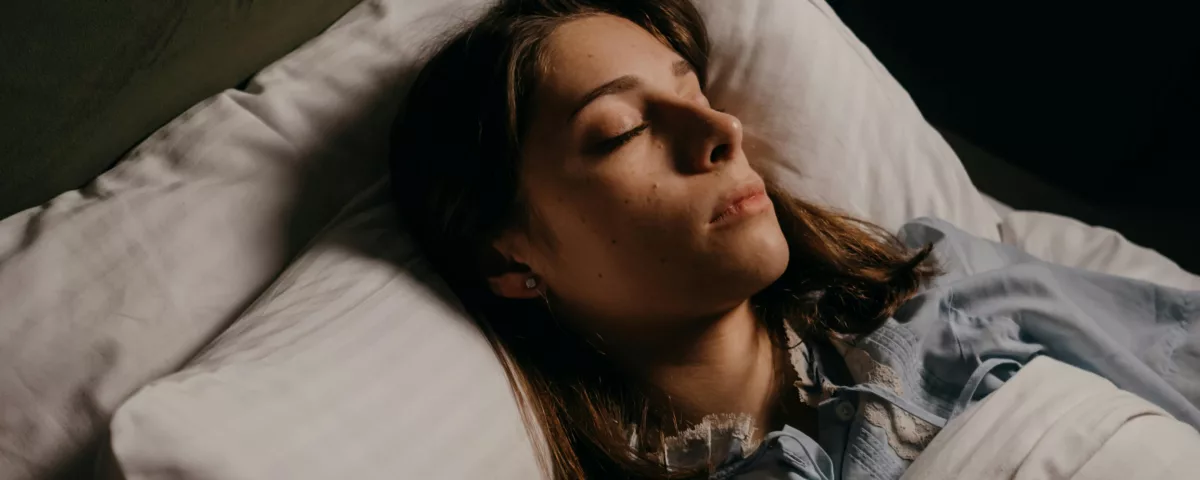Sleep is an essential part of our daily routine, allowing our bodies and minds to rest and recharge. However, for many people, achieving a good night’s sleep can be a challenge. This is where nootropics for sleep come in.
Nootropics, also known as “smart drugs,” are substances that can enhance cognitive function and improve various aspects of brain health. While they are typically associated with boosting focus, memory, and productivity, some nootropics can also be beneficial for sleep.
In this article, we will study the topic of nootropics for sleep and discover the best ones that can help you achieve a restful night’s sleep.
What are Nootropics?
Before delving into the realm of nootropics for sleep, let’s first understand what exactly nootropics are. Nootropics are substances that can enhance cognitive function and promote brain health.
They can range from natural compounds to synthetic drugs, all with the common goal of improving brain function.
Nootropics work by increasing neurotransmitter activity, improving blood flow to the brain, and protecting brain cells from damage.
They have gained popularity in recent years due to their potential to enhance focus, memory, creativity, and overall cognitive performance.
Are there Nootropics for sleep?
While nootropics are primarily known for their cognitive-enhancing properties, there are indeed specific nootropics that can aid in achieving a good night’s sleep.
These sleep-promoting nootropics work by targeting the factors that can disrupt sleep, such as anxiety, stress, and an overactive mind.
By calming the mind and promoting relaxation, these nootropics can help you fall asleep faster, improve sleep quality, and wake up feeling refreshed.
The Best Nootropics for Sleep

- Ashwagandha:
Ashwagandha is an adaptogenic herb that has been used in traditional medicine for centuries. It is known for its ability to reduce stress and anxiety, making it an excellent nootropic for promoting sleep.
Ashwagandha helps regulate the body’s stress response by reducing cortisol levels, allowing you to relax and unwind before bedtime.
- Bacopa:
Bacopa, also known as Brahmi, is an herbal nootropic that has been used in Ayurvedic medicine for its cognitive-enhancing properties. Aside from improving memory and focus, Bacopa has also been found to have sedative effects, making it beneficial for promoting sleep. It can help calm the mind and reduce anxiety, allowing you to achieve a peaceful night’s sleep.
- Magnesium:
Magnesium is an essential mineral that plays a crucial role in various bodily functions, including sleep regulation. It helps activate the parasympathetic nervous system, which is responsible for promoting relaxation and rest. Magnesium can also help regulate melatonin, the hormone that controls sleep-wake cycles. Taking magnesium as a supplement before bedtime can help improve sleep quality and reduce insomnia.
- 5-HTP:
5-HTP is a compound that is converted into serotonin, a neurotransmitter that regulates mood, sleep, and appetite. It can help increase serotonin levels in the brain, promoting feelings of relaxation and aiding in sleep. 5-HTP has been found to improve sleep quality and reduce the time it takes to fall asleep.
- Lemon Balm:
Lemon balm is a herb that has been used for centuries to promote relaxation and reduce anxiety. It contains compounds that have a calming effect on the nervous system, making it an excellent nootropic for sleep.
Lemon balm can help reduce restlessness and promote a sense of calm, allowing you to drift off into a deep and restful sleep.
- L-theanine:
L-theanine is an amino acid found in tea leaves, particularly in green tea. It has been found to have calming and relaxing effects on the mind, promoting a state of relaxation without causing drowsiness. L-theanine can help reduce anxiety and improve sleep quality by increasing alpha brain waves, which are associated with a relaxed mental state.
Cultivating healthy sleep habits
While nootropics can significantly enhance sleep quality, their effectiveness is greatly amplified when combined with healthy sleep habits. Adopting a holistic approach to sleep hygiene can ensure you gain the maximum benefit from your nootropic regimen.
Here are some key practices to incorporate:
- Establish a Consistent Sleep Schedule:
Aim to go to bed and wake up at the same time every day, even on weekends. Consistency reinforces your body’s sleep-wake cycle, enhancing the natural rhythm that nootropics support.
- Create a Restful Environment:
Your bedroom should be a sanctuary for sleep. Keep it cool, dark, and quiet. Consider using blackout curtains, earplugs, or white noise machines to block out disturbances. A comfortable mattress and pillows are also crucial.
- Mindful Eating and Drinking Habits:
Avoid heavy meals, caffeine, and alcohol close to bedtime. These can disrupt sleep and counteract the soothing effects of nootropics. Instead, opt for a light snack if you’re slightly hungry.
- Limit Screen Time Before Bed:
Exposure to light from screens can interfere with your circadian rhythm. Try to disconnect from phones, computers, and TVs at least an hour before bed. You could read a book or listen to calming music instead.
- Regular Physical Activity:
Regular exercise can promote better sleep, helping you fall asleep faster and enjoy deeper sleep. However, timing is important; exercising too close to bedtime may leave you too energized to sleep.
FAQ
Q: Are nootropics safe for sleep?
A: When used responsibly and in appropriate dosages, many nootropics for sleep are generally considered safe.
However, it is always advisable to consult with a healthcare professional before starting any new supplement regimen, especially if you have any underlying health conditions or are taking medication.
Q: Can nootropics cause dependency or addiction?
A: While some nootropics have the potential for dependency or addiction, the ones mentioned in this article are generally considered safe and non-addictive when used as directed.
It is important to follow recommended dosages and not exceed the recommended duration of use.
Q: Can nootropics replace good sleep hygiene practices?
A: Nootropics can be a helpful addition to a healthy sleep routine, but they should not be relied upon as a sole solution.
It is essential to practice good sleep hygiene, such as maintaining a regular sleep schedule, creating a sleep-friendly environment, and avoiding stimulants before bedtime, to optimize sleep quality.
Conclusion
While nootropics are commonly associated with enhancing cognitive function, there are specific ones that can also aid in achieving a restful night’s sleep. Ashwagandha, Bacopa, Magnesium, 5-HTP, Lemon Balm, and L-theanine are among the best nootropics for sleep.
These sleep-promoting substances can help calm the mind, reduce anxiety, and improve sleep quality. However, it is crucial to remember that nootropics should not replace healthy sleep habits, but rather complement them.
Consult with a healthcare professional to determine the best approach for incorporating nootropics into your sleep routine, and enjoy the benefits of both enhanced cognitive function and a good night’s sleep.
Disclaimer: The information provided in this article is for informational purposes only and is not intended to substitute for professional medical advice, diagnosis, or treatment.


